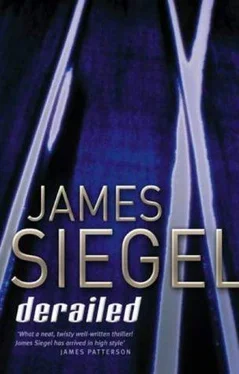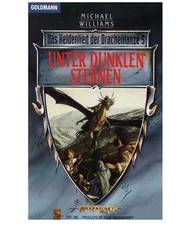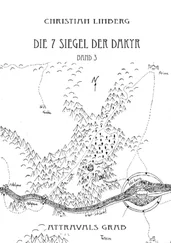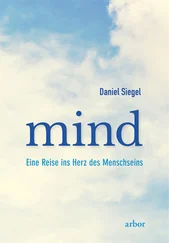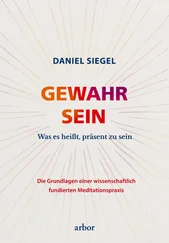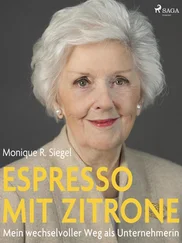And in my one desk drawer: a sheet of lined paper filled with what appeared to be New Year’s resolutions. “I will try harder to meet people,” was the first one. “I will be less judgmental.” And so on. I decided the writer of this list and the owner of the book were probably one and the same, since both pointed to a devotee of rigorous self-improvement. I wondered, if Deanna was from Venus, was I from Pluto?
I visited the 42nd Street Library. I strolled the Met. I spent an entire day half sleeping in the Hayden Planetarium, waking periodically to a canopy of stars — like an astronaut coming out of suspended animation, alone in the universe and so far from home.
I made sure to call Anna every afternoon — always from my cell phone, since the elaborate cover story we’d worked out to explain my absence was that I was shooting a new ad campaign in Los Angeles. Once, I’d spent two months out there doing just that; it seemed like an excuse that might actually work.
Where are you now? Anna would ask me.
The Four Seasons pool, I'd reply.
A studio in Burbank. A street in Venice. In a rented car at the intersection of Sunset and La Cienega.
Cool, Anna would say.
Deanna had told me she didn’t wish to speak to me for a while. The torture involved how long a while that would actually turn out to be. Occasionally she would pick up when I called and I’d hope that a while had ended right then. But she’d call out for Anna and wait silently until our daughter picked up the phone. In a way, it wasn’t that different from all our years A.D.—after diabetes—that stifling silence about things we couldn’t mention. Only there was a terrible reproof in her silence now, as opposed to just plain grief. And where before silence had been filled with the inconsequential and bland, it was now filled with the kind of quiet western movie heroes were always running into just before an ambush. It's quiet, they’d say to their amigos, too quiet.
It was late February, the Monday of my third week of banishment and joblessness, when I saw Lucinda again.
My first instinct was to hide and duck back farther into the faceless crowd. My second instinct was to say hello. Possibly because it was good to see her up and about again; it alleviated my guilt a little. Up and about and even talking to someone.
I’d wondered about her, of course. If she could ever recover from what Vasquez had done to her. I hoped so.
And now I thought that maybe she could. The rings under her eyes had gone away. She looked beautiful again; she looked like Lucinda.
I was so entirely fixated on her, it was probably a minute or so before I even took notice of whom she was talking to. Was that her husband — glimpsed briefly that day in front of the fountain at the Time-Life Building?
No. It wasn’t her husband she was talking to. This man was shorter, younger, frumpier. A fellow broker, perhaps — a friend from the neighborhood.
They seemed to be on good terms with each other, at least. They’d stopped in front of a newsstand and were engaged in a lively discussion.
I was in a kind of no-man’s-land, I realized. Neither far enough away to be invisible, nor close enough to be conversational. One look to the left and Lucinda would see me for sure — stuck in limbo, the man who’d failed her, a reminder of all she’d been through.
I wanted to spare her that. Mostly, I wanted to spare me that.
So I turned tail. I skirted the fringes of the slowly moving crowd and tried to keep my face forward to avoid any accidental eye contact.
I made it through the crowd, a piece of flotsam moving with the tide. All the way over to the stairway leading to Eighth Avenue. Home free.
Only, I’d peeked. I couldn’t help it. I’d peeked over at Lucinda and her business associate to see if I’d remained unnoticed.
And noticed something.
I mulled it over on the cab ride to the National Museum of the American Indian and decided I didn’t know what. Whatever it was had been picked up in one quick, furtive glance. And there’d been all these people between us, too. Foreground crosses, we call it in shoot-speak. Where you walk the extra back and forth between camera and actors to ensure it looks real, that it doesn’t look like some sound stage in Universal Studios.
Only sometimes you put too many extras into the mix, and they obliterate the actors entirely. It becomes impossible to see them, and they themselves become extras in the shot. Then you have to thin out the extras and rework the blocking so the actors can be seen again.
That’s sort of what I was doing in the cab.
I was trying to push the faceless crowd of commuters off to the side so I could see Lucinda clearly. Lucinda and that business associate of hers, or neighborhood friend. Or . . .
Her brother. Yes, maybe it was her brother, only I couldn’t remember if she had a brother or not. It seemed to me we’d spent a lot more time talking about my family than hers. I’d poured my heart out to her, hadn’t I? About Anna and Deanna? I didn’t remember whether she had brothers or not.
But it seemed to me now that it must have been her brother. Or perhaps her cousin. Yes, it could have been her cousin.
It had to do with what I’d noticed.
I was trying to push those other people out of the way to get a clear look, but they were getting annoyed and pushing back. They were telling me to get lost or busy looking for a cop.
Their hands.
I thought I saw their hands touching. Not interlocked, not intertwined, but touching.
Something you might do with a brother, wasn’t it?
And even if it wasn’t her brother, even if it was a friend of hers, a new friend of hers, could you blame her? I’d never asked her if I was the first. Why should I assume I’d be the last?
She was still stuck in the same awful marriage. She was desperately in need of someone to talk to. Now especially. Maybe she’d gone and found someone.
And for the briefest moment, I felt something suspiciously like jealousy. Just a quick pang, a phantom ache from a long healed wound.
Then I forgot about it.
THIRTY-TWO
It was Anna’s birthday.
I’d never missed one. I couldn’t imagine missing one now. She might give a sullen shrug of her shoulders when I brought up things like birthdays — Birthday, what’s that? — but I genuinely believed she’d never forgive me if I didn’t actually show up for one. And then I’d have two Schines in a unforgiving mode, and I was having a hard enough time with one.
So when I phoned home and Deanna picked up, I said: “Please don’t call Anna yet. I need to talk to you.”
She sighed. “Yes, Charles?” she said.
Well, she’d used my name, at least.
“Anna’s birthday is coming up,” I said.
“I know when Anna’s birthday is.”
“Well. Don’t you think I should be home for it? She’d hate me if she thought I’d stayed in California on her birthday.”
“I’m not ready for you to come home, Charles.”
Yes, that was a problem — Deanna not being ready. As for me, of course, I was more than ready.
“Well, couldn’t we . . . what if I say I came back just for her birthday and then I have to leave again?”
“I don’t know . . .”
“Deanna, it’s Anna's birthday . . .”
“Look . . . you can stay the night, okay? But in the morning, Charles, I want you to leave.”
“I understand. That’s fine. Thank you.”
It felt a little odd thanking my wife for letting me stay overnight in my own home. Not unjust, just odd. The important thing, though, was that she’d said yes.
When I arrived at the kitchen door, present in hand — I’d bought her three CDs based on the recommendations of a clerk at Virgin Records — Anna was sitting at the counter munching cereal and staring zombie-eyed at MTV.
Читать дальше
